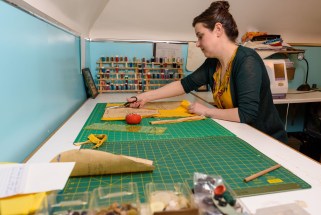Health-care head covering made with heart Winnipeg nurse, teacher team up to provide front-line hospital workers with homemade surgical scrub caps
Read this article for free:
or
Already have an account? Log in here »
To continue reading, please subscribe:
Monthly Digital Subscription
$0 for the first 4 weeks*
- Enjoy unlimited reading on winnipegfreepress.com
- Read the E-Edition, our digital replica newspaper
- Access News Break, our award-winning app
- Play interactive puzzles
*No charge for 4 weeks then price increases to the regular rate of $19.00 plus GST every four weeks. Offer available to new and qualified returning subscribers only. Cancel any time.
Monthly Digital Subscription
$4.75/week*
- Enjoy unlimited reading on winnipegfreepress.com
- Read the E-Edition, our digital replica newspaper
- Access News Break, our award-winning app
- Play interactive puzzles
*Billed as $19 plus GST every four weeks. Cancel any time.
To continue reading, please subscribe:
Add Free Press access to your Brandon Sun subscription for only an additional
$1 for the first 4 weeks*
*Your next subscription payment will increase by $1.00 and you will be charged $16.99 plus GST for four weeks. After four weeks, your payment will increase to $23.99 plus GST every four weeks.
Read unlimited articles for free today:
or
Already have an account? Log in here »
Hey there, time traveller!
This article was published 07/04/2020 (2078 days ago), so information in it may no longer be current.
A casual conversation between friends has spawned an online campaign to provide Winnipeg’s front-line hospital workers with homemade surgical scrub caps during the COVID-19 crisis.
CARING AMID THE COVID-19 CRISIS
Did someone get you groceries during your self-isolation? Did you deliver a meal to a neighbour? Did someone go above and beyond for you during this trying time? Tell us about it. We want to share the uplifting stories happening in our community as we cope with the coronavirus pandemic. Email kindness@freepress.mb.ca
“In light of the pandemic, everyone just feels they want to be as protected as possible, and that means covering up,” Jill Bright, a nurse in the adult emergency department at Health Sciences Centre, said this week.
“If we can cover our hair up, we feel a little more protected… We want to ensure that we’re totally covered.”
Bright said operating room staff are typically the only ones provided with surgical scrub caps because they work in a sterile environment.
However, concerns about the novel coronavirus have sparked a strong desire among staff in other areas of the hospital to have their heads covered.
“It’s for personal protection,” said Bright, who is married, with two stepdaughters. “There’s that desire to feel more protected and to know you are covered up as much as you can so you know you’re not bringing anything back to your family.”
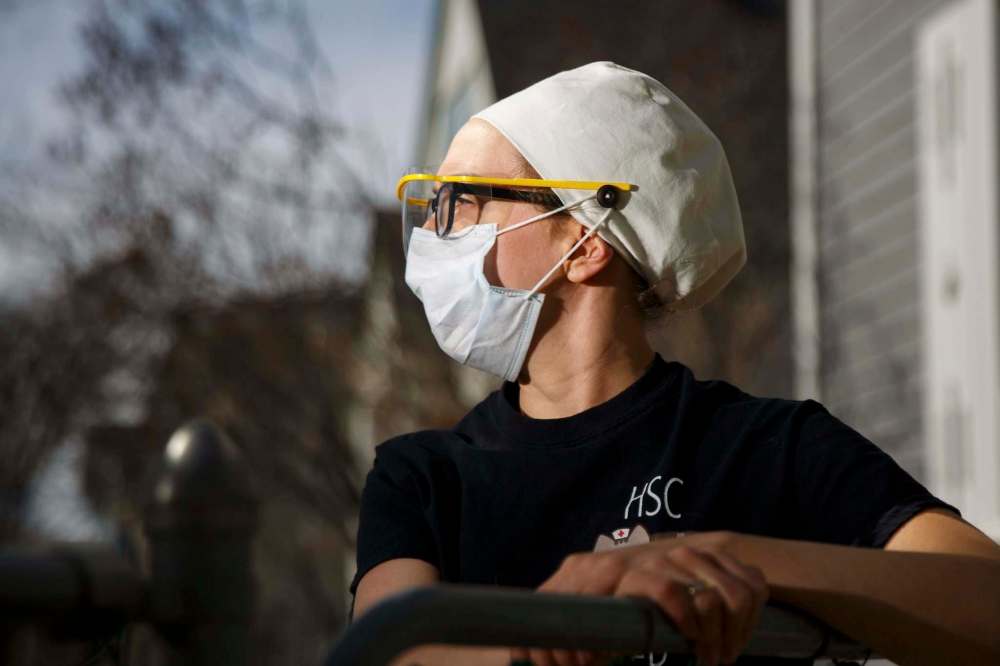
The online campaign to enlist local sewers to produce cotton caps for nurses and other front-line hospital staff was born after Bright discussed her concerns with close friend Rebecca Chambers, a human ecology teacher at Shaftesbury High School.
“I wanted to sew myself a couple of scrub caps to wear,” the ER nurse recalled. “I told (Chambers)… and then I got this message 20 minutes later and she had sewed this scrub cap already, and said, ‘Is this what you’re thinking about?’
“I wore it on my next shift and people said, ‘Oh, wow! What’s this about?’… and everyone jumped on board. It kind of exploded from there… Every day I get messages and people ask, ‘Oh, can I get two or three?’”
The response drove Chambers to create a Facebook group to encourage the local sewing community to start creating the garments for nurses and staff in other hospital departments.
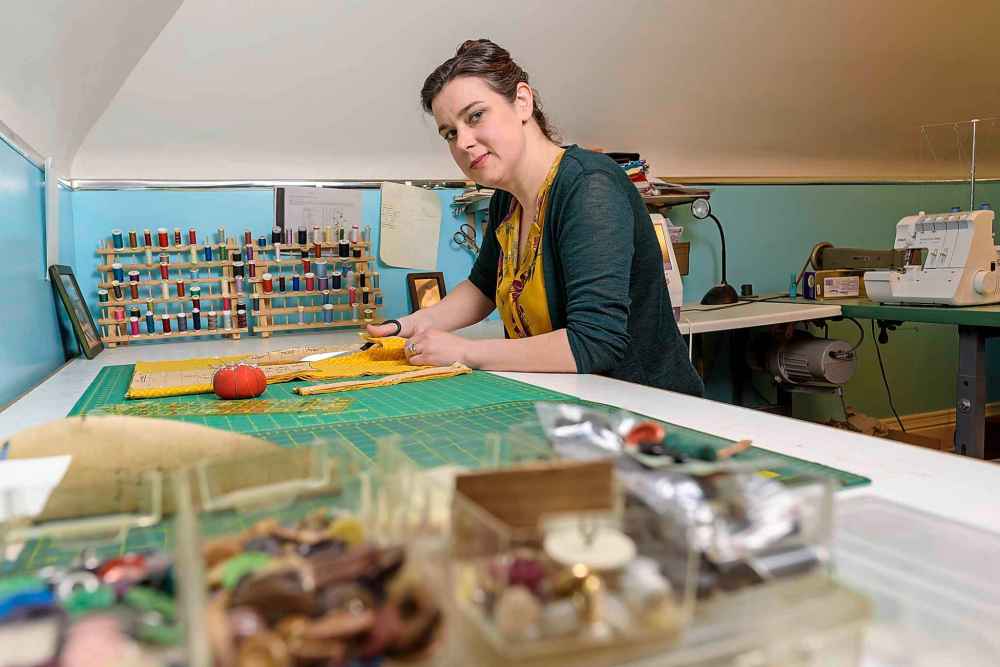
The Facebook group, which was nearing 80 members Tuesday, contains a plea for sewers, detailed instructions on how to make the caps, a print-at-home pattern, and names of pickup/delivery contacts at various city hospitals.
“What we want is people who can sew caps at home for health-care workers,” said Chambers, who is isolating at home with her husband and three sons. “If they don’t have a person in mind that they want to give the caps to, they can go to the Facebook page to find a drop-off location.
“There’s also a chat function, so if people have a question about sewing or need stuff picked up, they can send a message and someone can help.”

While the project is barely a week old, the homemade headgear has become an in-demand item at a number of city hospitals. Chambers and Bright noted the project has also gone viral and spread to other Canadian cities, including Kenora, Ont., Penticton, B.C., and Halifax.
“The demand is so big I’m sure people are sewing all day long,” Bright said. “I pick up 10 from Rebecca every day and hand them out. There’s just so many people sitting at home wanting to contribute and feel they’re being helpful and supporting the front-line workers.”
Chambers created patterns for two styles of washable cotton caps: one for short hair, the other for long. The caps are also equipped with buttons on the side to which the elastic ear loops of face masks can be attached.
“We have 300 health-care workers in our department alone — not including doctors — and most people have said they’d be interested in having two or three caps,” Bright said. “I feel we can continue to sew these until everyone has a couple. The demand is really high.”
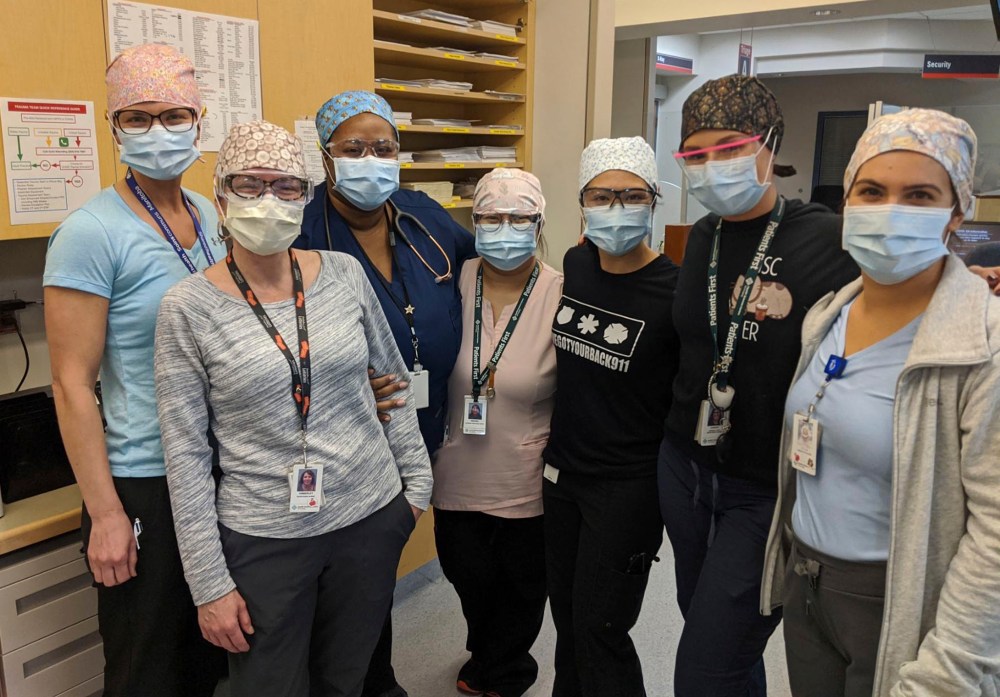
The reaction from staff receiving the hand-sewn head coverings has been emotional and powerful.
“It’s nice to see that we in the hospital can be a little excited about something,” Bright said. “Everyone is very anxious about what’s going on.
“I received a text message from a colleague. She said: ‘I really can’t explain it, but it really brought us together and put smiles on our faces. It brought a little bit of joy when we really need it the most.’”
Chambers said the caps need to be made from high-quality cotton so they can be washed and reused.
“Pure cotton is best, but quilting cotton and poplin and muslin are fine. The higher the cotton content, the better,” Chambers said.
“A lot of people who are sewing are running out of fabric. So we are also accepting donations of suitable fabric, buttons and thread.”
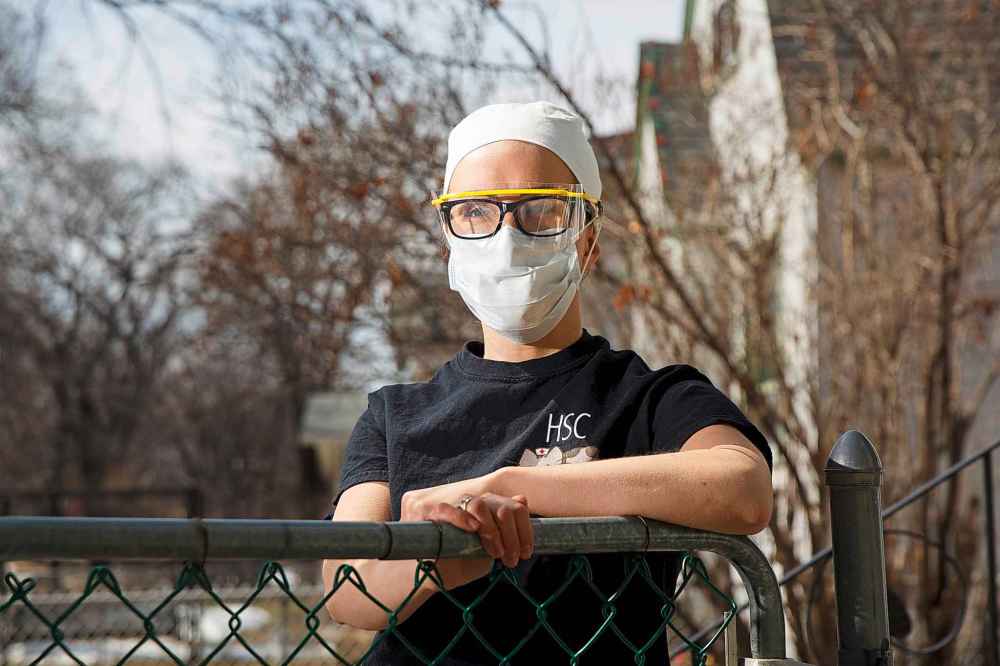
Much to the teacher’s delight, the simple, handmade caps have become a symbol of how a community can give back to health workers putting themselves at risk.
“I’m very happy,” she said. “My personal mantra in teaching is to build people up and bring them together. That’s why I’m a teacher. It feels great to be making these for the people who are on the front lines of this battle.”
doug.speirs@freepress.mb.ca

Doug has held almost every job at the newspaper — reporter, city editor, night editor, tour guide, hand model — and his colleagues are confident he’ll eventually find something he is good at.
Our newsroom depends on a growing audience of readers to power our journalism. If you are not a paid reader, please consider becoming a subscriber.
Our newsroom depends on its audience of readers to power our journalism. Thank you for your support.







